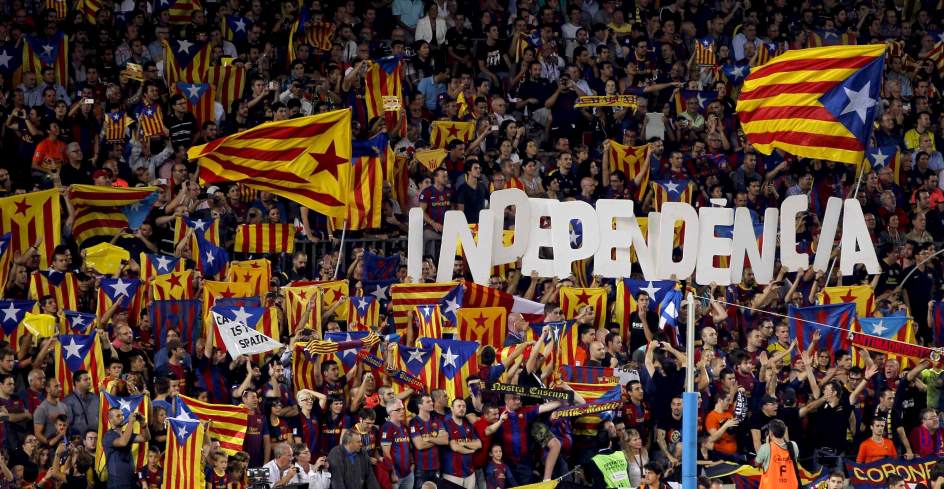05.04.2019 - 11:45
|
Actualització: 05.04.2019 - 13:45
According to the barometer of the Center for Opinion Studies (CEO), supporters of Catalonia’s independence rise by 1.2 points up to 48.4%, and those who opposite it go down to 44.1%, losing almost one point with respect to the last poll in October. This has been the trend since the referendum of October 2017.
On the other hand, 78.7% of Catalans are supportive of a referendum of self-determination, while only 14.8% oppose it. Also, 75.9% of respondents prefer a republic and only 12.3% a monarchy.
Spanish election
Pro-independence Esquerra Republicana (ERC) party is shown as taking the lead among Catalan parties, with 14-15 seats for the upcoming Spanish elections, surpassing the unionist Catalan Socialist Party (PSC), who would have 11 to 13 seats in Congress.
The Catalunya en Comú (CatECP) in-between-block would come in in third place among parties from Catalonia (7-9 seats), followed by the Junts per Catalunya, the governing partner of ERC (5-7 seats).
Coming in with the fewest members of congress are the Catalan branches of two unionist parties, Ciutadans (Cs, with 5-6 seats) and the People’s Party (PP, with 2).
A new party forecast as coming in to the Spanish congress for the April 28 elections is the pro-independence Republican Front coalition led by Former Catalunya en Comú MP Albano Dante Fachin, with 1 seat.
Theoretical Catalan election
Meanwhile, in a separate poll forecasting what would happen if new elections were to be called in Catalonia, ERC is also shown to be the favorite (with 40 to 43 seats). Ciutadans would fall from first to second place with 28-29 MPs, followed by JxCat with 22 to 24 seats. PSC would meanwhile up its chances with 21-23 MPs, while both far-left CUP and CatECP would both get 8 seats, and PP would either keep its 4 seats or drop down to 3.

